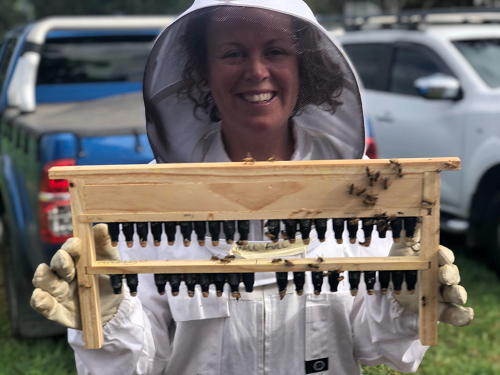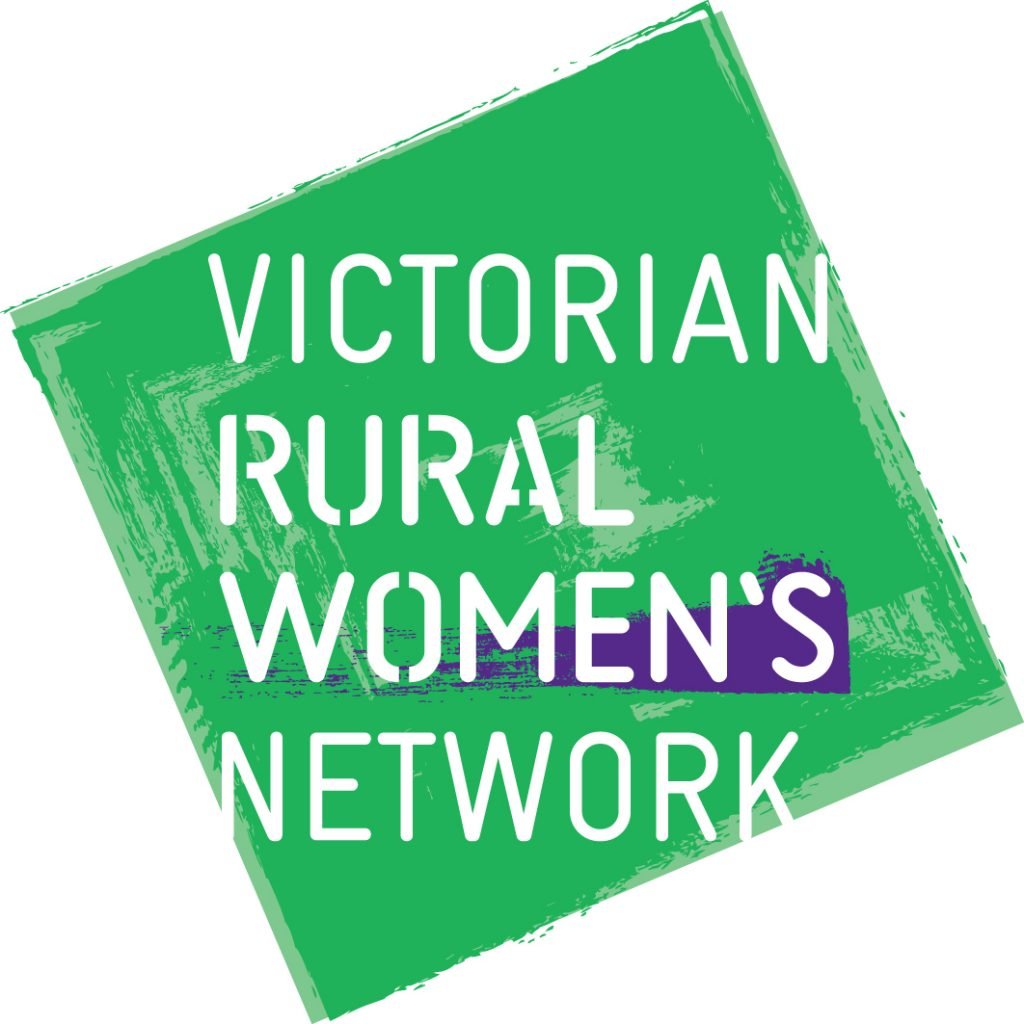As the issue of food security becomes paramount, Kyneton apiarist Claire Moore is concentrating on agriculture’s ‘littlest livestock’ — bees.
She says a new fundraising body, Hive Aid, will help support the survival of honey bees that have suffered widespread loss of habitat and feeding grounds, all the while enduring challenging changing climate conditions.
Bees are “the canaries in the coal mine” for horticulture and agriculture, says Claire, winner of the 2019 AgriFutures™ Victorian Rural Women’s Award. “If they continue to struggle or die in large numbers, agricultural and horticultural productivity will plummet. Many crops, including apples, avocado, cucumbers, pumpkin, blueberries and almonds, are 100 per cent pollinated by bees,” she explains.
Last summer’s devastating fires have burnt out hives, destroyed huge areas of habitat and put pressure on the long-term survival of some bee strains.
Claire says a long-term scarcity of water and the loss of flowering trees mean honey production has fallen sharply, bee populations have suffered, and many honey bees are currently neither producing honey nor pollinating crops.
Claire is a member of the Australian Honey Bee Industry Council which has set up Hive Aid, a fund designed to provide financial and practical help to professional beekeepers including providing water and feed to bees or the cost of fuel in moving hives to areas with greater food supplies.
The key issue to food supplies and agriculture, Claire says, is that pollinators affect 30 per cent of global agricultural production worldwide and help 87 of our leading crops. As the population increases, and more food is required, the need for more bees, pollinators and trained apiarists will grow.
Beehives are trucked from north of Brisbane to Mildura each year to pollinate the northern Victorian almond orchards. “By 2025, 100,000 more hives are going to be needed by the Australian almond industry to keep up with the number of almond trees needing pollination,” Claire says.
Having qualified as a commercial beekeeper, Claire is now working towards learning how to artificially inseminate bees to enable selective breeding. She hopes long term to research improved disease-resistant strains of honey bees that can survive and thrive in more extreme and erratic seasons.
In the meantime, Claire says everyone can support the ‘littlest livestock’ by buying Australian vegetables and fruit to creates a demand for Australian pollination services and by buying honey from local beekeepers.
Learn more about Hive Aid
Pictured above: Kyneton beekeeper and 2019 Victorian Rural Woman of the Year Claire Moore displays queen bee cells. She says funding is important to support the survival of honey bees



One comment, add yours.
Paul A. McIntosh
Well Done Claire in protecting our bee future. They are very necessary little insects for the world . Do schools have hives at all to teach students and visiting adults . A hive that has glass sides and kept indoors with a entrance in a side wall of the building . Look , listen and learn by our fascinating bees through the glass sides and not get stung .